Search Results
Showing results 141 to 160 of 401
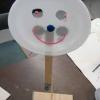
Bobbing Eyeballs
Source Institutions
In this activity, learners use simple materials and basic tools to construct a special toy to explore pendulums. As the head of the toy bobs one way, the eyeballs bob the other way.

Cable Car
Source Institutions
In this activity, learners string a line across the room and build cable cars that can move from on end to the other.
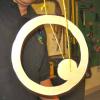
Bouncing Yo-Yo
Source Institutions
In this activity, learners build unique yo-yos, which spin round and round without moving up and down.

Bottle Blast Off
Source Institutions
With little more than a plastic bottle, some vinyl tubing, and a length of PVC pipe, make a rocket and a rocket launcher and investigate how rockets fly.
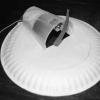
Hovercraft
Source Institutions
In this activity, learners build a hovercraft using a paper plate, cup, and simple motor.
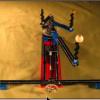
LEGO Orrery
Source Institutions
Use this model to demonstrate the goal of NASA's Kepler Mission: to find extrasolar planets through the transit method.

Strike 'em Down & Add 'em Up!
Source Institutions
In this activity, reuse two-liter bottles to create bowling pins. Learners practice math skills and develop a concept of verifying answers, while bowling and keeping score.
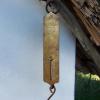
Hanging Around
Learners investigate weight by building a spring scale. They observe and record how it responds to objects with different masses.
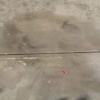
Kid Moon: Splat!
Source Institutions
In this activity, learners model ancient lunar impacts using water balloons.
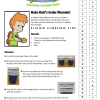
Make Matt's Coder/Decoder
Source Institutions
In this Cyberchase activity, learners make decoders to send and receive secret messages. Learners make the device out of two 8-ounce cups and two code strips.
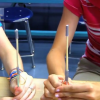
Stretch Your Potential
Source Institutions
In this activity, learners create a toy that demonstrates the First Law of Thermodynamics or the Law of Conservation of Energy.
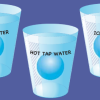
What Counts in Bounce
Source Institutions
In this activity learners compare the bounciness of warm and cold racquetballs to see if temperature makes a difference in how well they bounce.

Resource Hunt
Source Institutions
In this activity, learners explore nonrenewable resources and learn why these resources are finite.
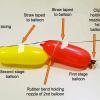
Achieving Orbit
Source Institutions
In this Engineering Design Challenge activity, learners will use balloons to investigate how a multi-stage rocket, like that used in the Interstellar Boundary Explorer (IBEX) mission, can propel a sat
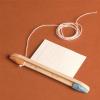
Bee Hummer
Source Institutions
In this activity, learners investigate sound and vibration by making a "bee hummer"--a toy that sounds like a swarm of buzzing bees when you spin it around.

Up Periscope!
Source Institutions
This activity provides instructions for building a mirrored tube--a smaller and simpler version of a submarine's periscope--that lets you see around corners and over walls.

Exploring Tools: Mitten Challenge
Source Institutions
In this activity, learners build a LEGO® structure while wearing mittens. This activity shows learners how difficult it is to build small things when your tools are too big.
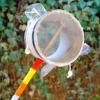
Torsion Drum
Source Institutions
In this activity, learners build a musical drum using a cardboard tube, plastic wrap, and beads.
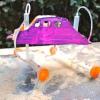
Hydraulic Car
Source Institutions
In this activity, learners build cars using syringes and water-powered hydraulics. Learners construct the car frame out of cardboard and set up a hydraulic system to raise and lower the car.
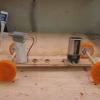
Propeller-Powered Car
Source Institutions
In this activity, learners construct cars that are powered by hand-made, electric propellers.
